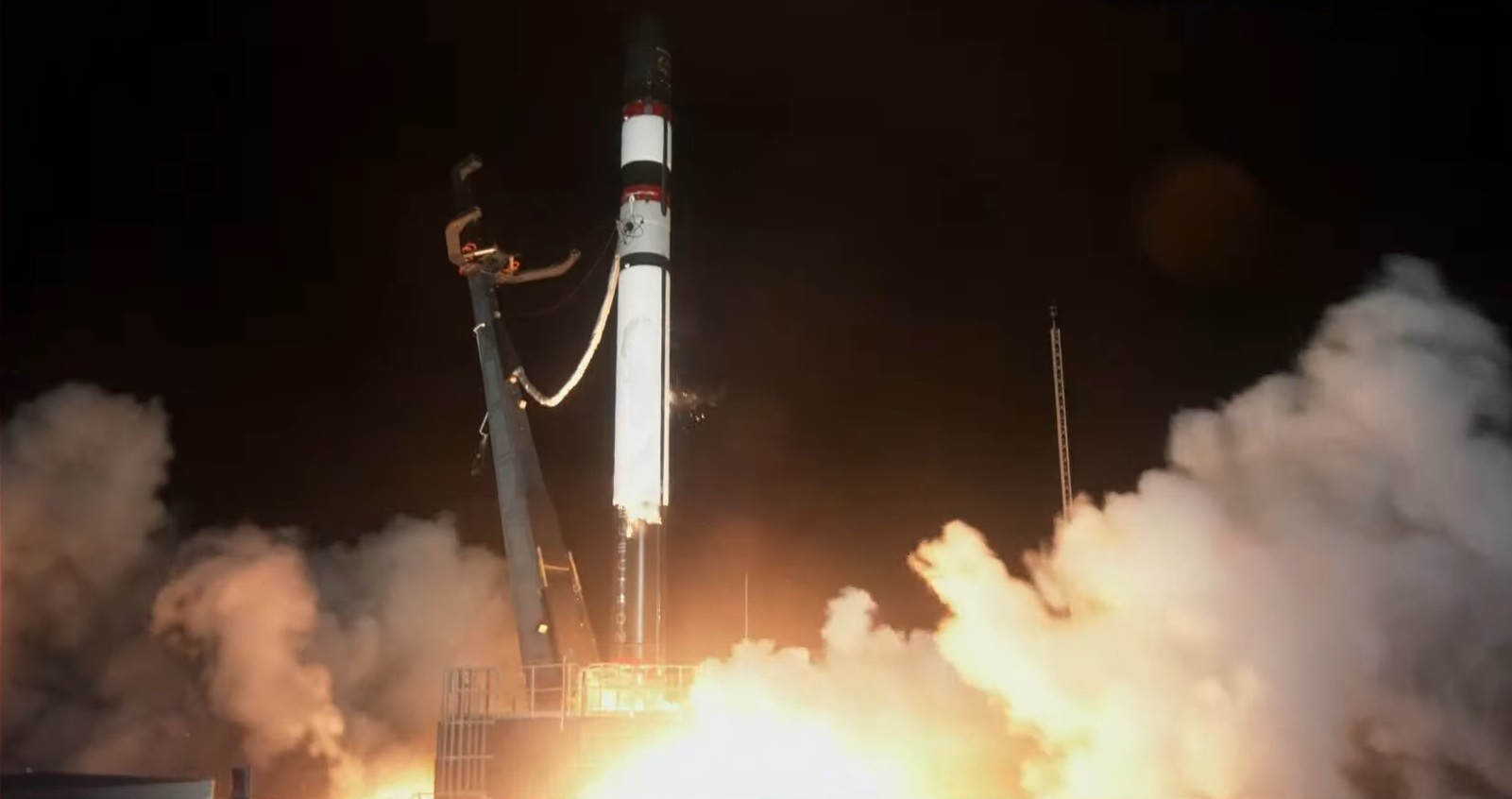Rocket Lab Electron booster launch fails to reach orbit, 2 satellites lost
Something went wrong at stage two engine ignition.
Breaking space news, the latest updates on rocket launches, skywatching events and more!
You are now subscribed
Your newsletter sign-up was successful
Want to add more newsletters?

Delivered daily
Daily Newsletter
Breaking space news, the latest updates on rocket launches, skywatching events and more!

Once a month
Watch This Space
Sign up to our monthly entertainment newsletter to keep up with all our coverage of the latest sci-fi and space movies, tv shows, games and books.

Once a week
Night Sky This Week
Discover this week's must-see night sky events, moon phases, and stunning astrophotos. Sign up for our skywatching newsletter and explore the universe with us!

Twice a month
Strange New Words
Space.com's Sci-Fi Reader's Club. Read a sci-fi short story every month and join a virtual community of fellow science fiction fans!
A Rocket Lab Electron booster carrying two commercial satellites failed to reach orbit Saturday (May 15) after suffering an anomaly just minutes after liftoff.
The launch failure occurred less than three minutes after a launch from Rocket Lab's Launch Complex 1 on New Zealand's Mahia Peninsula, and just after the Electron's two stages separated. Two Earth-observing satellites for the company BlackSky, their flight arranged by the firm Spaceflight, were lost.
"An issue was experienced during today's launch, resulting in the loss of the mission. We are deeply sorry to our launch customers BlackSky and Spaceflight," Rocket Lab wrote in a statement on Twitter after the failure. "The issue occurred shortly after stage two ignition."
Related: Rocket Lab and its Electron booster (photos)
A camera mounted on the Electron's upper stage showed stage separation 2 minutes and 35 seconds into the flight, followed by what appeared to be a brief ignition and a sharp sideways motion before shutting down. Rocket Lab confirmed a loss of telemetry from the rocket four minutes after liftoff.
Saturday's launch failure follows a failed launch in July 2020, which the company traced to a single faulty electrical connection. Rocket Lab's first Electron launch in 2017 failed to reach orbit due to a telemetry issue. Aside from those flights, Rocket Lab has seen 18 successful launches.
Rocket Lab launched the 58-foot-tall (18 meters) Electron booster at 7:11 a.m. EDT (1111 GMT) after just over an hour of delays due to high upper level winds. The mission was the company's 20th flight and nicknamed "Running Out Of Toes" to mark the milestone.
Breaking space news, the latest updates on rocket launches, skywatching events and more!
The first stage of the Electron did manage to parachute back to Earth after separating from the upper stage and splash down softly in the Pacific Ocean as part of Rocket Lab's reusability program, company representatives said in a statement today. A previous Electron made a similar splashdown in November 2020.
The company is testing technology to guide Electron boosters back to Earth in order to ultimately catch them in mid-air by snagging their parachutes with a helicopter. The goal: reuse the boosters and their engines to lower the cost of spaceflight.
This story was updated at 11:45 a.m. ET on May 15 with news of the first-stage booster splashdown.
Email Tariq Malik at tmalik@space.com or follow him on Twitter @tariqjmalik. Follow us on @Spacedotcom and Facebook and Instagram.

Tariq is the award-winning Editor-in-Chief of Space.com and joined the team in 2001. He covers human spaceflight, as well as skywatching and entertainment. He became Space.com's Editor-in-Chief in 2019. Before joining Space.com, Tariq was a staff reporter for The Los Angeles Times covering education and city beats in La Habra, Fullerton and Huntington Beach. He's a recipient of the 2022 Harry Kolcum Award for excellence in space reporting and the 2025 Space Pioneer Award from the National Space Society. He is an Eagle Scout and Space Camp alum with journalism degrees from the USC and NYU. You can find Tariq at Space.com and as the co-host to the This Week In Space podcast on the TWiT network. To see his latest project, you can follow Tariq on Twitter @tariqjmalik.

